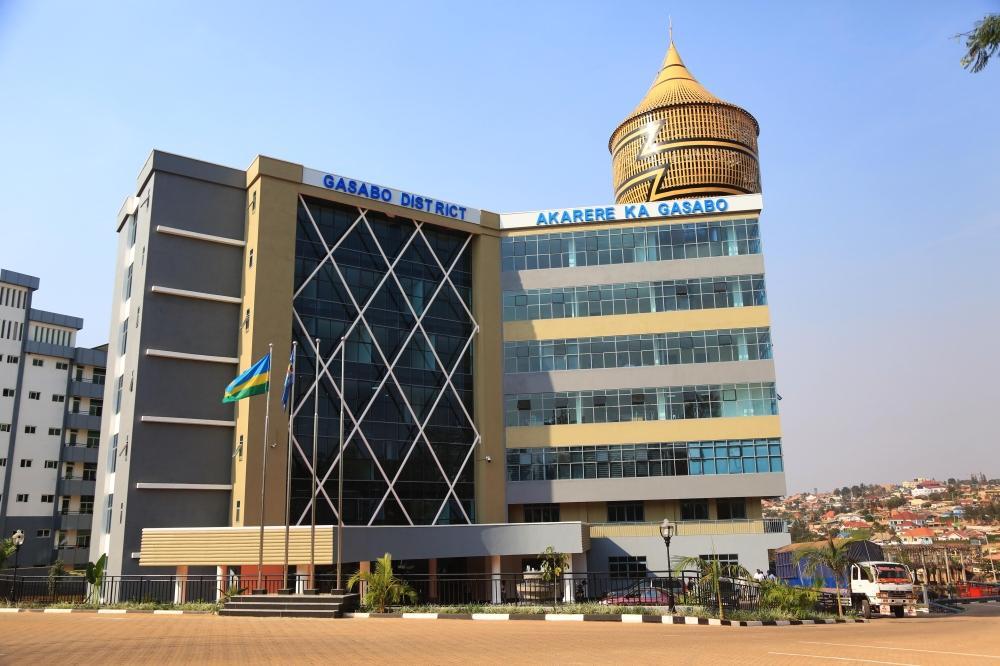Emmanuel Ntirenganya
Africa-Press – Rwanda. Rwanda’s 30 districts have nearly tripled their own revenue collections over the past decade, a development the Rwanda Revenue Authority (RRA) and the Rwanda Association of Local Government Authorities (RALGA) aim to build on in the current fiscal year and beyond.
District own revenues are resources that a district can mobilise and manage independently, instead of being managed under national treasury.
They include rental income tax paid by any individual who earns income from renting out the fixed assets located in Rwanda, including land and buildings; immovable property tax — levied on buildings and land such as based on their market value; and trading license tax paid by any person who opens a business activity within a district, according to RRA.
Speaking to The New Times on July 23, at the East African Local Government Forum (EALGF) meeting, Dominique Habimana, Secretary General of RALGA said that considerable improvements have so far been made in collecting local revenues, with districts working together with the Rwanda Revenue Authority, and other concerned entities.
The event brought together delegates from the East African Community member states.
Habimana pointed out that in the current fiscal year – 2025/26 – local governments (districts) in Rwanda have set a higher revenue collection target – around 20 per cent more than what was collected last year.
This year’s increase, Habimana said, is achievable as it aligns with the country’s steady progress.
“Collecting more means actually being able to serve citizens more. So, this is enabled by digitalisation. So, we now have digital systems that help to collect better, but we also have many local economic development activities,” he observed.
As projects such as roads, markets, and business centres are implemented, they stimulate economic activity. This, in turn, improves citizens’ incomes and strengthens their ability to pay taxes, rent fees, and other local levies, he pointed out.
All of this, he observed, supports Rwanda’s broader goal of building resilience and self-reliance.
Trends in district revenue growth
Ernest Karasira, Assistant Commissioner in charge of the Provincial and Decentralised Revenue Division at RRA, told The New Times that since the agency began collecting revenues on behalf of districts in the 2015/16 fiscal year, collections gradually rose from Rwf40.5 billion to Rwf105.9 billion in 2024/25.
The revenue target for the 2025/26 fiscal year has now been set at Rwf121.9 billion.
As districts’ own revenues rise, so do their budgetary needs, requiring continued central government support.
“The increase reflects the combined efforts of RRA and the districts,” he said. “But there’s still a need to do more so we can better meet the financing needs of districts.”
He claimed that in certain instances, a district’s own revenue only accounts for less than 20 per cent of its budget.
“Through our partnership with decentralised entities, we will continue identifying and tapping into potential revenue sources to enhance collections,” Karasira added.
Closing gaps in property and rental income taxes
Karasira pointed out that boosting districts’ own revenues will require addressing key areas with underperformance, particularly property tax and rental income tax.
“We are currently working with the National Land Authority to enable real-time data integration, allowing us to identify and register all individuals liable for property tax,” he said.
Rental income tax is another area with significant untapped potential.
“There are still many landlords who are not paying taxes on rental income. In collaboration with local governments, we aim to identify all such property owners and bring them into the tax net,” he explained.
He cited an ongoing exercise in the City of Kigali, where authorities are conducting a census of all rented property owners to ensure that they are registered and taxed accordingly.
“If these two areas are properly addressed, they will significantly contribute to increasing local revenue collections,” Karasira concluded.
Why RRA collects revenues on behalf of local governments
As for why RRA is involved in collecting revenues that technically belong to local governments, Habimana pointed out it is provided for by the law, stating that RRA is the national body mandated to collect public revenues and has, over time, developed the expertise, systems, and institutional strength needed for efficient collection.
“I think the important thing here is the efficiency to try to see in which way actually this exercise can be done better,” he said.
He said that it should be clear that RRA collects these revenues on behalf of local governments. It works closely with them to identify local tax potential and to develop tailored collection strategies—district by district, including in the City of Kigali, he pointed out, indicating that it is a joint effort built on coordination, transparency, and shared responsibility.
Source: The New Times
For More News And Analysis About Rwanda Follow Africa-Press






